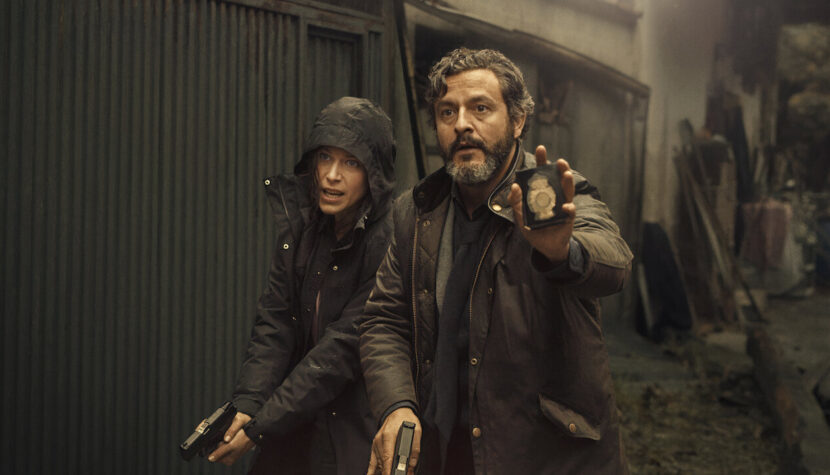INFIESTO. An occult thriller in the fumes of the coronavirus

The coronavirus pandemic as a harbinger of the end of the world? At the beginning of 2020, it would be easy to find supporters of such a theory, and from February 3, 2023, on Netflix, we can watch a Spanish thriller whose script is based on just such a hypothesis. Or at least that’s how the appearance of the coronavirus is interpreted by the degenerates who commit heinous crimes in the gloomy Infiesto.
The action of the film written and directed by Paxti Amézcua takes place in the Basque Country, where, literally at the moment of the announcement of the pandemic lockdown, an investigation into the miraculously found teenager begins. A terrified Saioa suddenly appears in the main square of a small town, and her condition leaves no doubt – the girl has been kidnapped and has been held captive for many weeks. As the world comes to a complete standstill due to lockdowns, Inspector García (Isak Férriz) and Sub-Inspector Castro (Iria del Río) start investigating. Although Saioa, who is still in shock, is unable to help them yet, the detectives quickly discover the next pieces of the criminal puzzle. In gloomy, March circumstances, they travel through the Basque province, finding terrifying clues that suggest the occult motives of the perpetrators. However, despite progress in the investigation, they still fail to find other kidnapped teenagers, whose rescue seems less likely with each pandemic day.
The depressing, sepia-toned landscapes of Basque are deceptively reminiscent of the Andalusian ones from Alberto Rodríguez’s film Marshland (2014), which won ten Goya awards. There are many more similarities – both in Infiesto and Marshland the protagonists are two detectives, in both cases there is a difference in age and approach to service. Both of these films are also about serial criminals, and the location for each of these investigations is not entirely friendly countryside. A quite important difference between Amézcuy’s and Rodríguez’s films is the time context – while Marshland tells the story of post-Franco Spain, Infiesto is very close to the past, and in addition still alive in our memory due to the global social trauma related to the coronavirus pandemic. This trauma seems to affect both of the main characters very quickly – Inspector García’s mother is in a nursing home, so he cannot have any contact with her, while Sub-Inspector Castro’s partner is infected with the coronavirus. This puts additional pressure on detectives who are denying themselves sleep in order to find kidnapped people as quickly as possible.

Related:
In the contemporary context, Infiesto’s originality seems to end. Paxti Amézcuy’s film is a fairly predictable “procedural”, which, in addition, moves through the subsequent stages of the investigation at a surprisingly fast pace – the whole is only 96 minutes, which for the criminal intrigue basically means a sprint through locations, clues and evidence. The compact size also means that we do not learn much about the main characters – somewhere there is a mention of García’s struggle with addiction, we can guess that he is in a close relationship with his mother, and his acquaintance with Castro did not start with this investigation. However, this is not enough not to treat the detectives as pretexts; they’re more like genre archetypes of sorts than flesh and blood heroes. The characters of the villains are also very shallow – you can see that Infiesto’s script is largely based on clichés and clichés that we know almost by heart from police movies. Amézcua is therefore part of the trend of undemanding detective stories and thrillers straight from Spain, which are being created almost continuously since Netflix decided to invest more funds in this region.
Is it worth spending time on Infiesto? If you have already watched Spanish crime films from recent years, you can give yourself this screening. Because there’s a good chance you’ve already seen a lot of very similar – if not almost identical – thrillers like this one. And if you still have a hunger for mysteries, however predictable, spending just over 90 minutes on Paxti Amézcuy’s film shouldn’t be a complete waste of your time.





